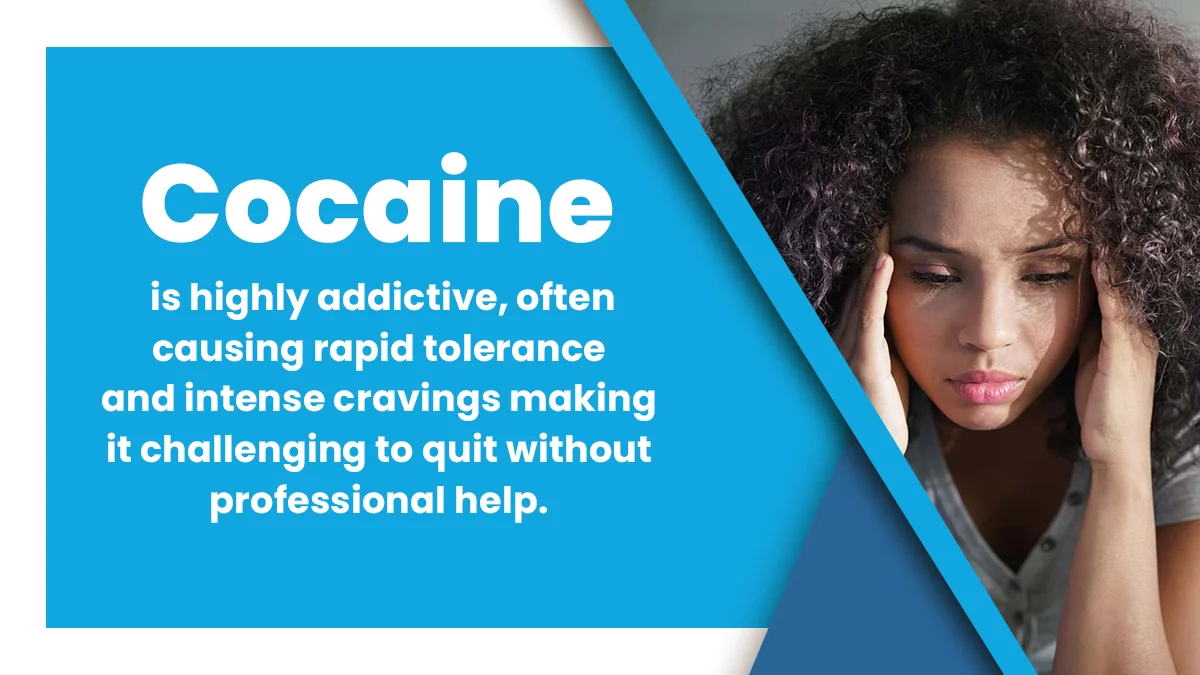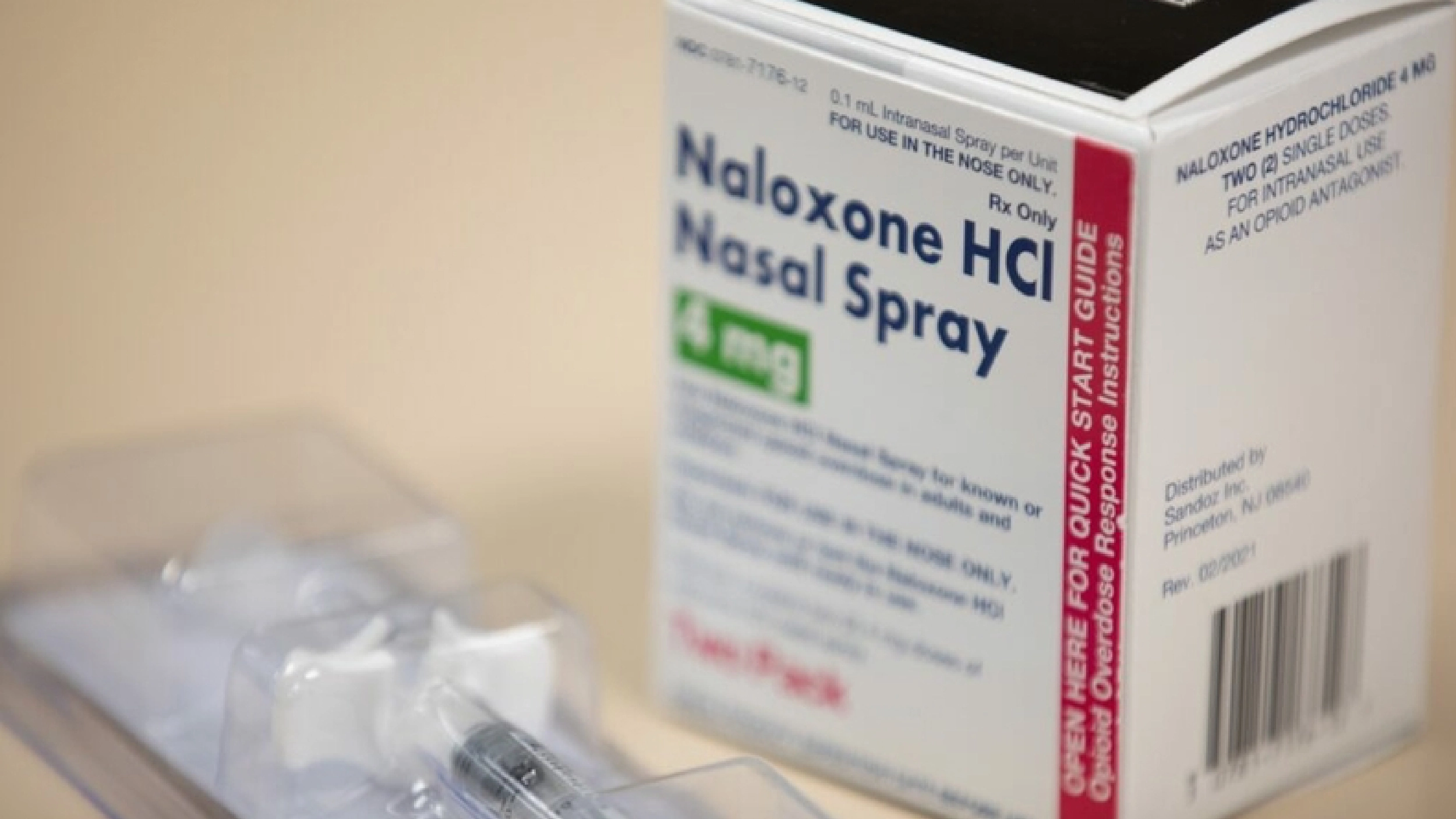
A Guide To Repairing Family Relationships
Discover expert tips for repairing family relationships and fostering healthy connections with The Recovery Team.

Cocaine, a powerful stimulant drug derived from the coca plant, is infamous for its addictive nature. This substance, often used in powder form, can lead to rapid feelings of euphoria and increased energy. However, its addictive properties can swiftly take hold of a person’s life.
This article will explore how cocaine triggers addiction by altering brain chemistry, leading individuals to crave its effects. Additionally, it will shed light on effective treatment options available to help those struggling with cocaine addiction regain control of their lives.
Cocaine, a powerful stimulant, is a highly addictive drug due to its immediate impact on the brain’s reward system. Here is what this article covers:
Contact The Recovery Team at (800) 817-1247 today to start your journey to lasting recovery from substance use disorder (SUD).
Cocaine’s addictive nature stems from its profound impact on the brain’s reward system. Here’s a breakdown of the key factors:
Cocaine elevates dopamine levels in the brain. Dopamine is a neurotransmitter associated with pleasure and reward. It floods the brain’s reward pathway, creating a powerful sense of euphoria and reinforcing the desire to use the drug.
Cocaine hijacks the brain’s reward circuitry, creating a reinforcing cycle. When individuals use cocaine and experience intense pleasure, their brain associates that pleasure with the drug, reinforcing the desire to use it again to re-experience the same feelings.
Over time, individuals may develop tolerance to cocaine, meaning they need higher doses to achieve the same addictive effects. Continued use of cocaine can also lead to physical and psychological dependence, where the individual feels unable to function normally without the drug.
When someone stops using cocaine after dependence has developed, they experience cravings and withdrawal symptoms. These symptoms can be both psychological and physical. The discomfort of cocaine withdrawal often drives individuals to continue using the drug to prevent these harmful effects.
The combination of these factors contributes to the highly addictive nature of cocaine, making it challenging for individuals to quit using it without proper support and treatment.
Cocaine addiction can have severe physical effects on the body, impacting various vital organs and systems. Here are some of the primary physical effects associated with long-term cocaine addiction:
Cocaine can significantly strain the heart and cardiovascular system. It can increase heart rate, high blood pressure, and irregular heart rhythms. Long-term use may lead to heart attacks, heart disease, and an increased risk of stroke.
Cocaine can be harmful to the respiratory system. Snorting cocaine can lead to nosebleeds, loss of sense of smell, and damage to the nasal tissues. Smoking crack cocaine can cause lung damage, chronic coughing, and respiratory infections.
Cocaine abuse can result in reduced blood flow to the intestines, leading to issues like abdominal pain, nausea, and decreased appetite. Chronic cocaine use may also cause damage to the digestive system.
Frequent cocaine use, especially when snorted, can cause damage to the teeth and gums. The drug’s acidity and vasoconstrictive properties can lead to tooth decay, gum disease, and even tooth loss.
Cocaine is an appetite suppressant, leading to significant weight loss and malnutrition over time. This weakens the immune system and makes individuals more susceptible to infections.
Long-term cocaine use may contribute to sexual dysfunction in both men and women, leading to reproductive health issues, reduced libido, and difficulties with arousal and performance.
Cocaine abuse can affect the skin, causing skin infections and abscesses at injection sites (if the drug is used intravenously), and in severe cases, it may even lead to skin tissue death due to restricted blood flow.
Sharing needles for cocaine injection can increase the risk of contracting infectious diseases such as HIV/AIDS and hepatitis.
Cocaine use disorder doesn’t just affect the body; it profoundly impacts mental and emotional well-being, contributing to a range of psychological challenges.
Prolonged cocaine abuse can impair cognitive abilities, affecting memory, attention, and decision-making. It diminishes the ability to focus and process information effectively, hindering everyday tasks and responsibilities.
Regular cocaine use often results in mood swings and emotional instability. Individuals may experience intense euphoria during drug use, followed by severe crashes, leading to feelings of irritability, anxiety, and depression.
Long-term use of cocaine can trigger mental health disorders such as anxiety, paranoia, and even psychosis. It intensifies feelings of restlessness and agitation, causing individuals to become overly vigilant or suspicious.
The emotional toll extends to interpersonal relationships, as individuals struggling with cocaine addiction may withdraw from loved ones, experience strained relationships, and face challenges in maintaining employment or meeting social obligations.
Cocaine dependence refers to a pattern of substance use where an individual becomes reliant on cocaine to function normally. Signs of cocaine addiction can manifest in both physical and psychological ways:
When someone dependent on cocaine suddenly stops or significantly reduces their use, they may experience withdrawal symptoms. Cocaine withdrawal is not typically life-threatening, but it can be highly uncomfortable and challenging to manage.
Withdrawal symptoms usually begin within hours to days after the last use and may include:
Crash Phase: Initially, there might be a “crash” marked by exhaustion, increased appetite, anxiety, irritability, and depression.
Acute Withdrawal: Following the crash, more pronounced symptoms can occur, such as strong cravings, agitation, restlessness, vivid dreams, disturbed sleep, increased appetite, and fatigue.
Post-Acute Withdrawal Syndrome (PAWS): For some individuals, prolonged withdrawal symptoms, known as PAWS, can persist for weeks or months. These may include mood swings, irritability, decreased energy, and continued cravings.
It’s important to note that cocaine dependence and withdrawal can vary in severity and duration from person to person based on factors such as the amount and frequency of use, individual physiology, and any underlying mental health conditions.
Cocaine addiction is a complex condition that demands a comprehensive approach for successful recovery. Various treatment programs are available to address the physical and psychological aspects of addiction.
Medical detox, often the initial, important step in treating cocaine addiction, involves supervised withdrawal in a controlled environment. Medical professionals prescribe medications to help manage withdrawal symptoms, ensuring a safe and supportive space for individuals to detox from the drug.
Rehabilitation programs offer different levels of care. Inpatient rehab involves residing at a facility for intensive treatment, offering a structured environment and around-the-clock support. Outpatient programs allow individuals to attend therapy sessions while living at home, providing flexibility for those with responsibilities.
While there are no FDA-approved medications specifically for cocaine addiction, certain medications can help manage symptoms of withdrawal and address co-occurring mental health conditions. Antidepressants and anti-anxiety medications may be prescribed to alleviate emotional distress during recovery.
Behavioral therapies, such as cognitive-behavioral therapy (CBT) and contingency management (CM), play an important part in the treatment of cocaine use disorder. These therapeutic interventions help those affected identify and modify negative thought patterns, develop coping strategies, and address triggers for drug use.
Engaging in support groups like Narcotics Anonymous (NA) or Cocaine Anonymous (CA) provides a supportive community of individuals facing similar challenges. These groups offer guidance, understanding, and a sense of camaraderie through shared experiences.
The Recovery Team is here to guide your journey to lasting recovery from cocaine addiction. Our tailored programs offer support at every step. We offer different levels of care dedicated to your well-being.
With evidence-based therapies, expert medication management, and engaging activities, you’ll find the support and tools needed to overcome drug addiction.
Don’t let addiction take more from you. Contact us at (800) 817-1247 today. Remember, every step forward counts.

Discover expert tips for repairing family relationships and fostering healthy connections with The Recovery Team.

Discover practical tips on how to set boundaries with people in this expert guide from The Recovery Team.

Naloxone saves lives. The Recovery Team shares how to reverse an opioid overdose with this drug.
Cocaine addiction can lead to cardiovascular issues, respiratory damage, and mental health disorders like depression, anxiety, and cognitive impairments, impacting long-term physical and mental health.
Yes, while not everyone becomes addicted after the first use, cocaine’s powerful effects on the brain can lead to immediate cravings, increasing the likelihood of addiction, even from the first encounter.
Cocaine is one of the highly addictive substances due to its rapid impact on brain chemistry, causing intense euphoria and triggering changes that lead to cravings, making addiction a significant risk.
Yes, cocaine is highly addictive. Its rapid pleasurable effects on the brain’s reward system can lead to cravings, compulsive use, and the development of addiction with regular use.